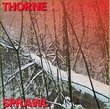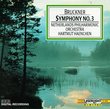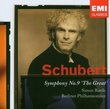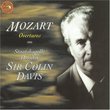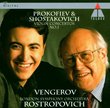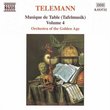| All Artists: Shostakovich, Rostropovich, Nso Title: Symphony 11 Members Wishing: 0 Total Copies: 0 Label: Elektra / Wea Release Date: 8/3/1993 Genre: Classical Styles: Historical Periods, Modern, 20th, & 21st Century, Symphonies Number of Discs: 1 SwapaCD Credits: 1 UPC: 090317626222 |
Search - Shostakovich, Rostropovich, Nso :: Symphony 11
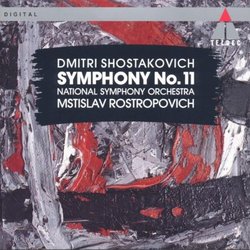 | Shostakovich, Rostropovich, Nso Symphony 11 Genre: Classical
|
Larger Image |
CD DetailsSimilar CDs
Similarly Requested CDs |
CD ReviewsRostropovich is the best 11th R. Kunath | Illinois, USA | 07/10/1999 (5 out of 5 stars) "Another review of this recording states that the playing is too soft. I think this is a problem of the recording having been made at a rather low level. If you turn up the volume there is no problem, and Rostrpovich's 11th is the best that I have heard. Tempos are slower than usual (much slower than the 1950's Mravinsky), but the intensity and concentration of the playing are exceptionally gripping. I listen to other versions of this symphony, but no one that I have heard (Montgomery, Jansons, Mravinsky) makes it work as well as Rostropovich. If you like Shostakovich, you can't live without this." 11th too lowly ranked amongst Shostakovich's mighty 15 R. Kunath | 02/09/1999 (4 out of 5 stars) "Dmitri Shostakovich, the brilliant 20th century Soviet composer is surely credited as a genius. Not all of his works, however, have fallen in that category. Thanks to Rostrapovich and the National Symphony this little known symphony (as compared to the 1st, 5th, 7th, & 10th) is brought to life. While the playing is a little soft at times it's ultimately an extremely satisyfying recording commemorating the suppression of the 1905 Revolution. The second mvmt. (The Ninth of January) will send a chill up your spine with its eerie martial beats and overwhelming power. The fourth mvmt quotes Polish freedom song "Warsawjanka" and is amazing. The ominous bells at the end surely allude to the oppressive fist that Shostakovich composed under. His work always carries such an interesting duality to it, and the mighty 11th sympony is no exception." Critically Underrated Bryan Catanzaro | Albany, CA United States | 12/19/2001 (5 out of 5 stars) "An amazing performance. I am captivated by its intense feelings, especially the thunderous finale of the fourth movement. I recently bought Stokowski's rendition, but it doesn't hold a candle to this recording. Very tight rhythmically, thoroughly enjoyable."
|

 Track Listings (4) - Disc #1
Track Listings (4) - Disc #1
